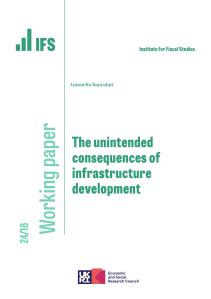On May 6, 1946, all hell broke loose in the Hertfordshire village of Stevenage. Lewis Silkin, minister of town and country planning in the 1945 Labour government, was in town. By some accounts, half the local population of 6,000 attended a public meeting, most to stage a noisy protest. The tyres of his car were let down and sugar was poured into its petrol tank.
Stevenage was to be designated as the first of the wave of the new towns in which getting on for three million people now live. Today a valuable part of our urban infrastructure, at the time they were not popular among the local population. There was little of the local democratic oversight and control that we might expect in the 21st century. Residents effectively were presented with a fait accompli, a diktat from Whitehall. This was a national priority. They could like it or lump it. Drawing parallels with central planning in what was then Soviet Union, on another visit Silkin was greeted by a sign at the railway station altered to read Silkingrad.
There has been some speculation over whether our new Labour government will match the dramatic announcement by Gordon Brown, only days after the 1997 general election, that the Bank of England would have operational independence over the setting of interest rates. That set the tone for his focus on economic stability. Perhaps the new Labour government, with its stated focus on housebuilding and growth, could take a leaf from that much earlier period. It would be something of a statement of intent if Angela Rayner, as the new housing secretary, were to turn up at a small town or village in Hertfordshire or Surrey or some other green and pleasant part of the London commuter belt and simply announce that, like it or lump it, here there will be a new town of 250,000 houses.
I’m not sure that’s likely, but it’s a good illustration of the sort of thing our new government will need to contemplate if it is as serious as it says it is about growth. Indeed, Rachel Reeves’ very first statement as chancellor was to affirm growth as a national mission. Broadly speaking, we know, we really do know, what it is that we need to do to give ourselves our best shot at growing the economy. And, broadly speaking, we have chosen not to do those things. That’s because they are often difficult. They come with trade-offs and for too long we have been on the wrong side of those trade-offs. In the case of housing and planning, we have prioritised the interests of those who already have homes and live in nice places over the interests of those who need homes close to where there are well-paid, highly productive jobs but who at present are either paying absurd amounts for their housing or are priced out of the area altogether.
Let me illustrate some other trade-offs. We know, and I mean know, that closer trading relationships with the European Union, for instance through membership of the customs union and single market, would be good for growth. However, we have decided for political reasons to leave them and it seems the new government has ruled out rejoining them.
We know that tax reform would be good for growth. It looks from its manifesto as though Labour also considers much action in this field similarly to be beyond the pale. There is no space here for the details, but again we know broadly what to do: get rid of stamp duty, sort out capital gains tax, stop penalising income from employment relative to other forms of income, get rid of the absurd marginal rate structures in income tax, do a better job of full expensing in corporation tax and much more. The obvious barrier is that some people would lose. Never popular. The broader barrier is that, as the overall tax burden has risen, governments have moved heaven and earth to protect average earners and have piled more and more on to companies, high earners, anyone other than the median voter. That, eventually, could come with an economic cost, including to the median voter.
We also know that a better education system, from the early years through to vocational and further education, is needed, as is investment in infrastructure. They may sound rather different, but they come with two similar challenges. First, they cost money, and we like to pretend that we can achieve growth without upfront investment and hence higher taxes or lower spending elsewhere. Second, they are hard to get right and require long-term consistency, a focus on delivery and patience. Political rewards therefore can be lacking. Yet if we want growth, we have to prioritise the long term, as Lewis Silkin and that 1945 Labour government did.
A government putting economic growth front and centre of its priorities, as I absolutely believe it should, needs to get much more right. There are tough choices to be made on everything from regulation and competition to welfare reform and devolution. But if this all sounds too hard and risky, our new government should bear one thing in mind. Each individual decision may come with a political cost, but a failure to raise living standards over time will come with the ultimate political cost of electoral oblivion.
Feeble economic performance was not the only reason for the Conservatives’ descent into the electoral abyss, but it was a pretty big part of it. Our new ministers should bear that in mind each time that they have to make these tough choices. Shying away from them may seem politically easier in the short run, but in the long run if you don’t make the choices that promote growth, not only will you fail the country, you will sow the seeds of your own failure.
This article was first published in The Times, and is reproduced here with kind permission.










